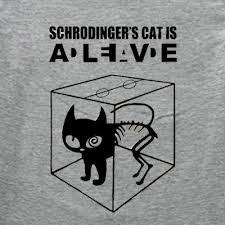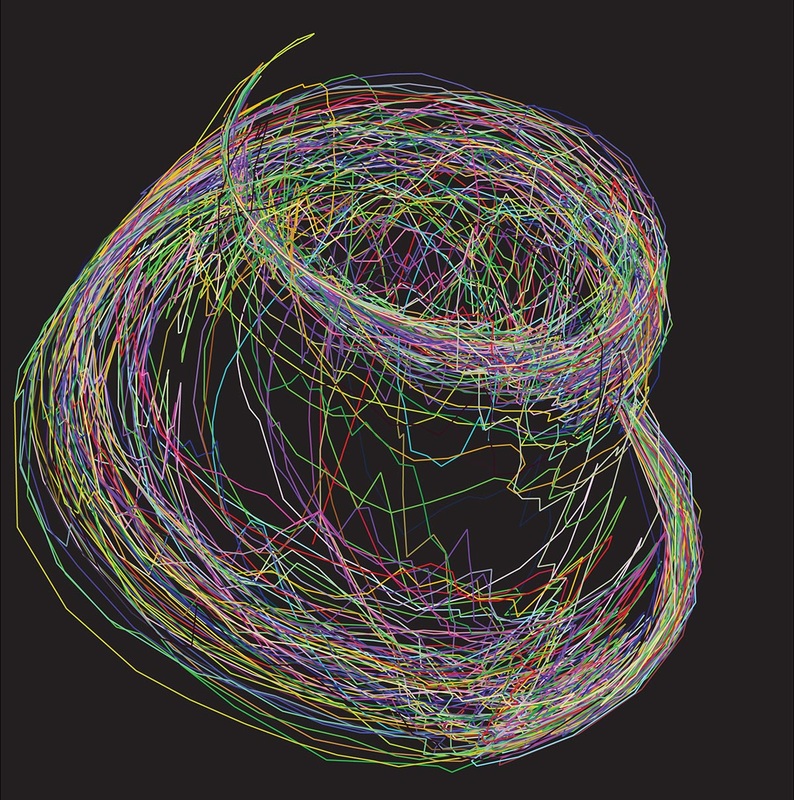|
Like most people, sometimes I stand in front of a supermarket aisle and get frustrated with the number of decisions to be made. When there were three options I had the time to read through the table for fat, sodium or sugar content. Nowadays we are usually confronted with more than three choices. This "Paradox of Choice" Ted talk made me laugh with funny cartoons and jokes. Barry Schwartz is pointing us to an important fact: Given the multitude and easiness of choices, our expectation level will be raised, thus our happiness level will change if a small "something" goes wrong because we think we had more control than we really did. Hmmm, does this sound familiar to my fellow perfectionist artists out there? Does this sound familiar to parents out there? The life-long balancing act of asking the most of ourselves and forgiving ourselves. Another Ted talk on choices we make from a philosopher's point of view, pointing us to our freedom to choose as a way to know ourselves better. When writing pros and cons for choices, one is in fact choosing which aspects of life we would value more, and values take a lifetime to define. What really matters to us? That list changes with time, and it also changes us. There are those who feel that "happiness is wanting what you have." Others feel that one should not get too comfortable but strive to question ourselves to change and adapt. As performers, do we, if under pressure in a short time period, choose overall spirit of the piece over technical cleanliness? do we choose to perform less often to a smaller well informed audience on more "appropriate" stages or do we choose to reach out to a less informed new audience with easier level pieces of music ? What were our goals when we went for that higher education degree? As teachers, do we, when students start to spend more time thinking about other activities or the opposite sex, choose to build a life-long music- lover over a future competition winner? Ruth Chang believes in personal ultimate freedom, though her examples are for developed country audience, she is raising a good point.  Science is confusing. One may tend to believe that Art is open to interpretations but that Science would be black and white, with right and wrong answers. Afterall, these predictive precise results are the reasons technology evolved. "To every force there is an equivalent force in the opposite direction." "Resistance (to gravitation) is futile" I use these principles when teaching drops on the piano. Then came Quantum physics. The world of probabilities opened up. In the interpretations of Quantum physics’ thought experiments, one stuck out and inspired many to write. Philosophical and humorous books debated its ramifications: the principle of superposition. Back in the early 1990s, I was so impressed with it that I presented a project linking music to this theory in a doctoral seminar. Just like Young's double slit experiment which described light as BOTH particle and wave, in 1935, Erwin Schrodinger proposed a theory: a cat is put in a box with three objects — a Geiger counter, a radioactive substance and poison that will kill the cat if the Geiger counter detects radioactive decay — In the Copenhagen Interpretation (Niels Bohr) of this thought experiment, the cat EXISTS AS BOTH alive and dead until the box is opened, when it instantaneously becomes dead or alive. It’s the act of measurement that is actually driving the system, when someone is perturbing the system by measuring it. In music, is there any superposition of states one can think of? The "in the moment" state with the "anticipation" state co-existing simultaneously as one performs? The "zooming in the details" and the "zooming out for the bigger phrase or structure" co-existing as one practices? The "let the muscle memory work" and the "control freak" in us co-existing at the same time? The "relearse wrist and arm" as one tries to "keep the finger's joints firm" at the same time? You can think of countless other examples. Please share on the Contact page with me if you have ideas. Would musicians perturb the system if we try to measure it? Should we just leave these co-existing states-of-being do what they do without conscious awareness of what or how they do it? I think this topic deserves more thought, more readings of research on "Insight", and another entire blog someday. In the quantum mechanical theoretical model NOTHING HAS TO happen. The particle never has to decay. The probability just keeps getting closer and closer to one. There is nothing to force a real event to happen until one measures it. Quantum mechanics only describes how probabilities change with time. It says nothing about the state of the cat as these probabilities change, what happens between observations has not been tested, until recently. In a new paper on the cover of Nature in August, 2014, scientists from the University of Rochester, University of California at Berkeley and Washington University in St. Louis have shown that it is possible to track these quantum trajectories (see image below). They compared them to a recently developed theory for predicting the most likely path a system will take between two states. Professor Jordan of Rochester University offers the analogy of butterflies making their way one by one from a cage to nearby trees. “Each butterfly’s path is like a single run of the experiment, they are all starting from the same cage, the initial state, and ending in one of the trees, each being a different end state. By watching the quantum equivalent of a million butterflies make the journey from cage to tree, the researchers were in effect able to predict the most likely path a butterfly took by observing which tree it landed on. Dr. Siddiqi, of Berkely, used a circuit that can only be in two states, called a ground state and an excited state. This circuit is a type of qubit, or unit of quantum information. They probed inside the box without opening it and followed the path the particle makes. They find that the particles follow the most likely path is one of least resistance, and that it is a probability function. These ideas also deserve another entirely separate blog entry. For the first time as well, physicists have generated an entanglement between a single photon and a coherent wave-like state of light, demonstrating that light is both particle and wave in a new paper published July 2014 in Nature Photonics, by physicists Hyunseok Jeong, et al., at institutions in South Korea, Italy, and Australia. Experiments are starting to catch up to Quantum theory in physics. That had always been how that field worked. Hypothesis come before experiments. Insights can come before conscious understanding. Most musicians work that way. It is the most direct, the most intuitive, usually the fastest way. Does it guarantee a perfect performance each time? No. Is there such a thing? I always feel sympathetic to visual art creators, for they have to finish with a product. On a particular day, the art work is finished, ready for viewing, fixed at a moment in time. Musicians have the luxuary of an ever changing art form that only exists at a specific point in time. Music parallels our life. In music, we also have hypothesis and experiments. The music field includes both theorists and performers or teachers. There are specialists in the "Philosophy of music," a field I only recently stumbled on, specialists in the field of "Music Education, "specialists in "musicology," in "music theory," and so on. There are times I wonder how disconnected and lonely we all are, each of us in our own cubicle of specialty.There are so many different professional organizations in music that it is difficult to join all of them. What good are theories, philosophies and talks ABOUT music if not applied? What good is the formation of excellent performers without an audience to appreciate what they have to offer? Advocates for music in society try to use research in Neuroscience to justify its value in society. If most people believed that probability rules our world at the smallest level of "matter" perhaps we can fight this battle on another battlefield. There are mysteries unsolved, and there will always be. |
BloggerI have known Thich Nhat Hanh since 1984 and try to practice Mindfulness in my daily life. Recently I trained and am now a qualified teacher for Mindfulness Based Stress Reduction at the University of San Diego. See the main tab Mindfulness for course offerings. Archives
June 2019
Categories |


 RSS Feed
RSS Feed